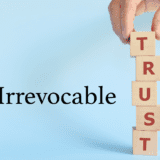When most people hear “Power of Attorney,” they often think of emergency situations—like illness, injury, or aging. But the truth is, a Power of Attorney (POA) can be an essential planning tool for everyday life, not just worst-case scenarios. Whether you’re helping a parent manage their finances or simply making a big move with your family, having the right POA in place can make life a lot easier.
So what exactly is a POA, and how can it work for you?
What Is a Power of Attorney?
A Power of Attorney (POA) is a legal document that allows you to appoint another person—referred to as your “agent” or “attorney-in-fact”—to make decisions and take actions on your behalf. These decisions can range from financial and legal matters to healthcare and personal affairs, depending on the type of POA you establish.
The beauty of a POA lies in its flexibility. You, as the “principal,” have full control over how much authority to grant your agent, when that authority begins, and when it ends. The document can be broad and all-encompassing, or narrowly tailored to a specific task or time period. And contrary to common belief, a POA doesn’t mean you’re giving up your independence—it simply gives someone else the legal ability to act alongside you or in your place, as needed.
Here’s how it works in real life:
- Going out of the country and need someone to handle banking or business transactions while you’re gone? A POA can help.
- Want to ensure your spouse or child can manage your bills and finances if you’re recovering from surgery? A POA makes that possible.
- Selling a property but can’t attend the closing in person? A POA allows someone to sign on your behalf.
It’s also important to note that a POA can be revoked at any time as long as you’re mentally competent. You’re always in charge.
Without a valid POA in place, your loved ones might have to go to court to get the authority to act for you—especially in a time-sensitive or emotionally stressful situation. That’s why putting one in place early, with the help of an experienced estate planning attorney in Westmoreland County, can save you and your family unnecessary complications down the road.
Types of Powers of Attorney
There are several types of POAs, each designed to serve a specific purpose depending on your unique needs and circumstances.
Whether you’re preparing for a medical emergency, managing real estate transactions, or simply planning for peace of mind, choosing the right kind of POA is essential. Each type varies in terms of the powers granted, when they take effect, and how long they remain valid. Some are designed for long-term planning, while others are useful for short-term or one-time situations.
Understanding the distinctions between these POAs can help you make informed decisions—and ensure that the right person can step in and help when needed most. Here’s a breakdown of the most common types and what they can do for you:
- General Power of Attorney Grants broad powers to the agent to handle financial and legal matters on your behalf. It typically ends if you become incapacitated.
- Durable Power of Attorney
Stays in effect even if you become incapacitated. This is commonly used in estate planning to ensure someone can continue managing your affairs if you’re unable. - Limited (or Special) Power of Attorney
Authorizes your agent to act for you in specific situations—like selling a home or managing one transaction. - Medical Power of Attorney
Also known as a Healthcare Proxy, this allows your agent to make medical decisions on your behalf if you are unable to do so. - Springing Power of Attorney
Only goes into effect when a certain condition is met, typically when you are declared incapacitated.
What Is a Financial Power of Attorney?
A Financial Power of Attorney is a legal document that gives someone you trust the authority to manage your financial matters on your behalf. This person—known as your “agent” or “attorney-in-fact”—can step in to handle everything from paying your bills and managing your bank accounts to buying or selling real estate, handling investments, and filing taxes.
Think of it as a flexible financial toolkit: you get to decide how much authority your agent has, when it begins, and whether it continues if you become incapacitated.
There are two main types of financial POAs:
- General Financial POA: Gives your agent broad powers to handle your finances. It usually ends if you become incapacitated unless it’s made “durable.”
- Durable Financial POA: Remains in effect even if you become incapacitated, which makes it an essential part of most estate plans.
Here are a few real-world examples of what a financial POA can allow your agent to do:
- Sign documents to sell or refinance a home
- Manage retirement or investment accounts
- Pay rent, utilities, tuition, or medical bills
- Access safe deposit boxes or digital assets
- Communicate with banks, lenders, or the IRS on your behalf
It’s important to remember that having a financial POA doesn’t mean you’re giving up control. You’re simply giving someone else the legal authority to help—whether temporarily (such as while you’re traveling or moving out of state) or in the event of an emergency. Without it, your loved ones may have to go through court to be appointed as your guardian or conservator, which can be time-consuming and emotionally draining.
That’s why meeting with an attorney for Power of Attorney is a smart step in any financial or estate planning process. If you’re in Pennsylvania, working with a trusted Estate Planning Attorney in Westmoreland County can ensure that your POA is valid, properly tailored, and ready to serve when you need it most.
Why Consider a Financial Power of Attorney?
A financial POA gives your agent the authority to handle money matters on your behalf—paying bills, managing bank accounts, handling real estate transactions, filing taxes, and more. While it’s often associated with incapacity planning, it can also be an incredibly useful tool for everyday life transitions.
For example, imagine starting a new job out of state or dealing with a lengthy business trip. With a financial POA in place, your trusted agent can take care of important financial matters while you’re away—no need to fly home to sign papers or deal with delays.
Case Study: How a Financial POA Helped One Family Relocate Seamlessly
Let’s take the story of Mike and Sarah, a young couple from Westmoreland County, Pennsylvania.
Mike was offered a dream job in North Carolina—but there was a catch. He had to start in just two weeks. That left Sarah to handle the logistics of selling their home, caring for their two children, and preparing for the family’s big move. Fortunately, they had already met with an estate planning attorney at Bumbaugh | George | Prather | DeDiana and set up a financial Power of Attorney, as part of their estate plan.
Because of this, Sarah had full legal authority to handle the sale of their home. She could meet with real estate agents, accept offers, sign contracts, and even close on the property—all without Mike having to return from North Carolina. Their POA saved them time, travel expenses, and an incredible amount of stress.
This is a perfect example of why a Power of Attorney isn’t just for emergencies—it’s a smart tool for real-life transitions and modern family life.
Ready to Plan Ahead?
Whether you’re planning for the unexpected or simply want to make life a little easier, having a Power of Attorney in place is a proactive step that can give you peace of mind. As attorneys for Power of Attorney matters, we can help guide you through your options and draft a document that fits your unique needs.
Don’t wait for a crisis—plan ahead with confidence.
Contact Bumbaugh | George | Prather | DeDiana today to get started with your Power of Attorney and estate plan.
Frequently Asked Questions About POAs and Financial POAs
Why should I have a Financial Power of Attorney?
A Financial Power of Attorney (POA) gives someone you trust the legal authority to manage your financial affairs if you’re unable—or simply unavailable—to do so. Whether due to illness, travel, military deployment, or a cross-country move, a financial POA ensures that your bills can be paid, property can be sold, and important transactions can move forward without delay. It’s not just a safety net—it’s smart planning for everyday life and unexpected events.
How does a Financial Power of Attorney work?
When you create a financial POA, you (the “principal”) designate someone (your “agent” or “attorney-in-fact”) to act on your behalf for financial matters. You decide what powers your agent has, when their authority begins (immediately or only under certain conditions), and how long it lasts. Your agent can then handle things like banking, investing, signing contracts, paying taxes, and even managing real estate. It’s completely customizable to your needs and preferences.
When does a Financial Power of Attorney end?
A Financial POA can end in several ways:
- If you revoke it at any time (as long as you’re mentally competent)
- If the document has an expiration date and that date arrives
- If you pass away (POAs are no longer valid after death)
- If a court invalidates it or appoints a different guardian
- If the agent resigns or is unable to serve and no successor is named
If you want the POA to remain effective even if you become incapacitated, you need to create a Durable Financial Power of Attorney.
Can a Financial Power of Attorney write checks?
Yes. If the POA document authorizes it, your agent can write checks, pay bills, and manage bank accounts on your behalf. This can be especially helpful for elderly individuals, frequent travelers, or families going through major transitions. Just make sure the POA document clearly outlines these powers to avoid issues with financial institutions.
How do I get a Financial Power of Attorney?
The best way to ensure your POA is legally sound and tailored to your situation is to work with an experienced estate planning attorney. At Bumbaugh | George | Prather | DeDiana, we help individuals and families throughout Westmoreland County create Financial Powers of Attorney that are clear, enforceable, and effective. Whether you’re planning ahead or responding to a sudden need, our team will walk you through the process and handle all the legal details.
Contact our office today to schedule a consultation and take the first step in protecting your financial future.








